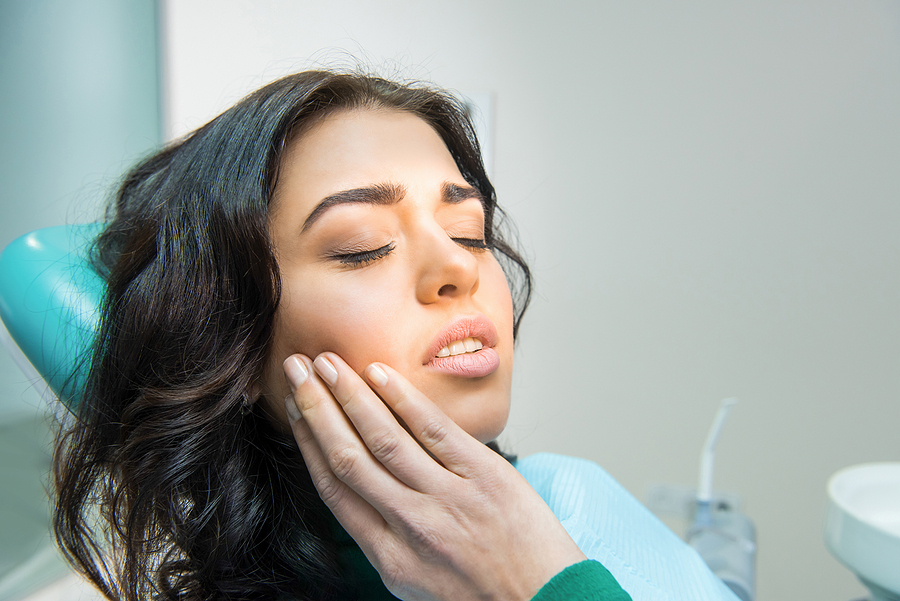Please reach out to our dental practice in Pleasanton, CA, to have a consultation with our dentist in Pleasanton CA, Dr. Dogra. Please call us at (925) 600-9006 or schedule an online consultation, and we’ll guide you further.

How to Prevent Gum Disease: Tips for a Healthy Smile
Your smile is one of your greatest assets, but did you know that gum disease can threaten it? Many people underestimate the importance of healthy gums. They often focus on just their teeth while neglecting the soft tissues that support them. Gum disease, which starts with inflammation and can lead to severe dental issues if left untreated, affects millions worldwide.
But here's the good news: preventing gum disease is easier than you might think! By adopting a few simple habits and making informed choices about your oral care, you can keep your gums strong and vibrant. Let’s dive into what causes gum disease and how you can maintain a dazzling smile for years to come.
Understanding Gum Disease and its Causes
Gum disease, also known as periodontal disease, begins with the buildup of plaque on your teeth. This sticky film is a breeding ground for bacteria that can irritate your gums. As plaque hardens into tartar, it becomes increasingly difficult to remove.
Initial symptoms include redness and swelling in the gums. Bad breath and bleeding during brushing or flossing often follow. If left untreated, gum disease can progress to more severe stages, leading to receding gums and tooth loss.
Several factors contribute to this condition. Poor oral hygiene is a primary culprit; neglecting daily care allows harmful bacteria to thrive. Other contributors include smoking, hormonal changes, certain medications, and genetic predisposition.
Understanding these causes helps you take proactive steps toward prevention and treatment options available in Pleasanton, CA, for those seeking gum disease treatment.
The Importance of Good Oral Hygiene
Good oral hygiene is the cornerstone of a healthy mouth. It goes beyond just having fresh breath; it’s essential for preventing gum disease and tooth decay.
Brushing your teeth twice a day removes plaque, a sticky film of bacteria that can lead to serious dental issues if left untreated. Choosing fluoride toothpaste enhances this protection by strengthening enamel.
Flossing is equally important. It reaches areas between the teeth where toothbrush bristles can't access. Daily flossing helps eliminate food particles and plaque buildup, which are primary culprits in gum inflammation.
Moreover, maintaining good oral hygiene contributes significantly to overall health. Studies link poor dental care to various systemic conditions like heart disease and diabetes.
Establishing a routine not only keeps your smile bright but also fosters confidence in social situations, making it an invaluable aspect of daily life.
Proper Brushing Techniques for Healthy Gums
Brushing your teeth effectively is key to maintaining healthy gums.
- Start by choosing a soft-bristled toothbrush, which is gentle enough to avoid damaging gum tissue.
- Hold the brush at a 45-degree angle against your gums. This position allows the bristles to reach both the tooth surface and the area just under your gum line—where plaque can build up unnoticed.
- Use short, gentle strokes rather than aggressive scrubbing. Focus on one section of your mouth at a time, spending about 30 seconds per quadrant. Don’t forget those hard-to-reach areas at the back of your mouth!
- Make sure to brush for two minutes twice daily. Consistency matters greatly in fighting off bacteria that cause gum disease.
- Replace your toothbrush every three months or sooner if the bristles fray; an effective tool makes all the difference in achieving optimal oral health!
Flossing and its Role in Preventing Gum Disease
Flossing is often overlooked, yet it plays a crucial role in maintaining healthy gums. Daily flossing removes food particles and plaque that toothbrushes can miss. These hidden residues can lead to gum disease if allowed to linger.
When you floss, you’re not just cleaning between your teeth; you're also stimulating the gums. This gentle action promotes blood flow, contributing to healthier tissue. Stronger gums are more resistant to infection.
Many people find flossing tedious, but incorporating it into your routine makes a significant difference over time. Choose a comfortable type of dental floss that suits your needs, whether it's waxed or unwaxed.
Remember, consistency is key! Make it a part of your daily oral hygiene ritual for optimal results in preventing gum issues. The effort invested today pays off with lasting benefits for your smile tomorrow. Contact us to learn more.
Diet and Nutrition Tips for Stronger Gums
Nutrition plays a key role in maintaining healthy gums.
- Incorporating vitamin C-rich foods, like oranges and strawberries, can help strengthen your gum tissue. Vitamin C aids in collagen production, essential for keeping your gums resilient.
- Don’t overlook the importance of calcium. Dairy products such as yogurt and cheese provide this vital mineral, promoting strong teeth and bones alongside healthy gums.
- Hydration is crucial, too. Drinking plenty of water helps wash away food particles and bacteria that contribute to gum disease.
- Omega-3 fatty acids found in fish like salmon have anti-inflammatory properties which may benefit gum health.
- Avoid sugary snacks that feed harmful bacteria, leading to plaque buildup. Instead, munch on crunchy fruits or vegetables like apples or carrots; their fibrous texture naturally cleanses the mouth while providing nutrients.
By making mindful dietary choices, you can significantly improve your gum health over time.
Regular Dental Checkups and Cleanings
Regular dental checkups and cleanings are essential for maintaining optimal oral health. These visits allow your dentist to identify any early signs of gum disease or other issues before they escalate.
During a routine cleaning, plaque, and tartar buildup is removed from your teeth and gums. This process is crucial because even with good home care, some areas can be hard to reach.
Your dentist will also examine your mouth thoroughly. They assess gum health, look for cavities and screen for oral cancer. Early detection makes treatment easier and more effective.
Scheduling these appointments twice a year helps keep you on track for healthy gums and teeth. It’s an opportunity to discuss any concerns you may have about your oral hygiene routine as well.
Don't underestimate the value of professional care in preventing gum disease—it plays a vital role in achieving that bright smile you desire.
Lifestyle Changes to Help Prevent Gum Disease
Making simple lifestyle changes can significantly impact your gum health.
- Start by quitting smoking or using tobacco products. These habits hinder blood flow to your gums and increase the risk of disease.
- Regular exercise not only boosts overall health but also improves circulation, which is essential for healthy gums. Aim for at least 30 minutes a day, whether it’s walking, cycling, or participating in sports.
- Stress management plays a crucial role too. High stress levels can lead to neglecting oral hygiene and other unhealthy habits. Incorporating mindfulness practices like yoga or meditation can help keep stress in check.
- Stay hydrated throughout the day. Drinking water helps wash away food particles and bacteria from your mouth, promoting healthier teeth and gums.
- Consider limiting sugary snacks and drinks that can contribute to plaque buildup on your teeth. Choose healthier alternatives instead; they benefit both your body and smile alike.
When to Seek Professional Help
If you notice persistent bad breath or a metallic taste in your mouth, it might be time to schedule an appointment. These can be early signs of gum disease.
- Gums that bleed while brushing or flossing are another red flag. Healthy gums shouldn’t bleed easily. If they do, don’t ignore it.
- Swollen or tender gums can indicate inflammation. This discomfort is often a sign that professional intervention is needed.
- Chronic sensitivity to hot and cold foods may also warrant a visit. It’s crucial not to dismiss this as normal wear and tear.
- If you experience tooth mobility, seek help immediately. Loose teeth can lead to serious complications if left untreated.
- Listening to your body is key in maintaining oral health. Don’t hesitate to reach out for guidance when something feels off with your gums.
Conclusion
Preventing gum disease is an essential part of maintaining your overall oral health. By understanding the causes and symptoms, you can take proactive steps to protect your gums. Good oral hygiene practices, such as proper brushing and flossing techniques, play a vital role in preventing issues before they start.
A balanced diet rich in vitamins and minerals will further support strong gums. Regular dental checkups are crucial; they help identify potential problems early on so that treatment can be applied promptly if necessary. Lifestyle changes like quitting smoking or managing stress levels can also significantly impact your gum health.
If you notice any signs of gum disease—such as redness, swelling, or bleeding—don't hesitate to seek professional advice from a dentist specializing in Gum Disease Treatment in Pleasanton, CA. Taking these steps not only contributes to healthier gums but enhances your overall smile, too. Prioritizing your oral health will pay off with long-lasting results for years to come!
Office Hours
MON - WED9:00 am - 5:00 pm
THUClosed
FRI9:00 am - 5:00 pm
SAT8:30 am - 2:30 pm
SUNClosed




comments